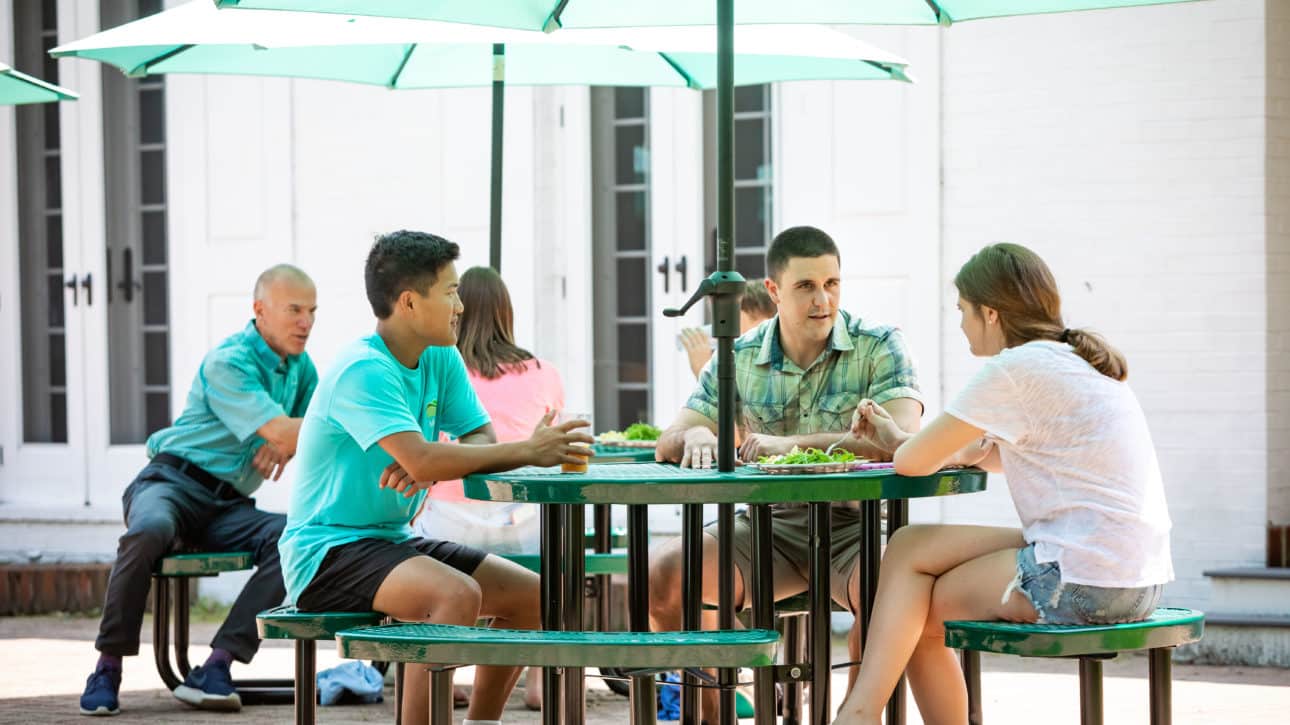Mountain Valley’s Narrative Approach

CEO Will Laughlin discusses Mountain Valley’s new phased approach to treatment with Executive Program Director Zack Schafer.
Will: Can you tell me how you are using a narrative approach to structuring treatment at Mountain Valley?
Zack: Yes, of course. There tends to be a typical arc to how residents progress through treatment at Mountain Valley. Sort of organic stages that they pass through and benchmarks of progress and growth that are thematically typical but that also vary, of course, per resident. Our assessment of a given resident’s passage through those stages, however, tended to be subjective in nature. So, we have applied a narrative reasoning approach to provide a structured overlay to our program; it consists of three stages, or phases, that more specifically define and sequence the experiences, skills, and competencies that make for a successful Mountain Valley experience. This allows our inputs- both clinical and milieu based- to be more intentional while also making our assessment of progress more objective and concrete. Every resident’s experience here unfolds as a unique story; using a narrative reasoning approach allows us to track and measure that story.
Will: There are three stages, or phases, to this narrative structure. Can you describe each one?
Zack: Sure. As I mentioned, the overlay is informed by the burgeoning body of research called narrative psychology and, more specifically, narrative reasoning- an approach used extensively in the field of occupational therapy. While there are many ways we could have structured our program phases, we borrowed from Joseph Campbell’s hero’s journey because it aligns so well with our foundational modality of exposure and response prevention, or ERP. Specifically, the hero’s journey supports the ERP concept that if you face things you are afraid of, you’re likely to come out the other side a better person and/or more true to who you are and were always meant to be. The way our website states it, facing fears is the best path to “finding the person you’ve always been.”
We call our first phase The Departure. This is when a resident leaves home to come here. It’s a time to settle in and build a foundation for the treatment experience. During the phase, we help residents get used to a new routine, new environmental factors-like the absence of tech, a different sleep/wake cycle, dietary changes, et cetera. Also, before they can do deep therapeutic work, they have to build strong trust and rapport staff, including their assigned clinician. So, trust and rapport building is a real emphasis now and is why there is more accommodation during The Departure than there will be later in the program. This is also the phase in which we establish an initial treatment plan.
The second phase is called The Adventure. In this stage, you’ve settled in and now you are ready face some hard things. This phase is all about facing challenges and actively seeking out opportunities for growth, which is crux of a resident’s therapeutic experience. Typically, our residents encounter one or more turning points during this phase; usually these come in the form of a particularly challenging moment. It’s these moments that often provide our residents with a revelation that allows them to change the way they relate to the world and their own anxiety. This can take the form of a primary event, whether in the form of a planned exposure or an organic, unplanned stressor. It shows up as one big event for some residents and a few smaller crisis points for others. It’s these “adventures” that really help push the resident forward.
The third phase is called The Return. This is less a reference to your literal home than it is to returning “home” to the person you’ve always known yourself to be. It’s also about preparing for whatever home will be after Mountain Valley. For some residents that might be college, for others it’s boarding school or a step-down treatment program, and for many it’s the home from which they came to Mountain Valley. This phase is about planning for what’s next and preparing to bring your new skills and confidence with you.
Will: So, just as a resident’s “return” is really a return to who you most authentically are, the “departure” is a departure of old ways of being.
Zack: Yes. You’re departing from familiar and unhelpful patterns of engaging, or disengaging from, a world you’ve come to fear.
Will: What are you most excited about in implementing this new program overlay?
Zack: Because there are defined skills, experiences, and assessment tools built into each phase, this approach helps us focus clinically and more objectively monitor progress. That helps us ensure consistent quality and allows us to pace the program to match a resident’s capacity for change. Also, it gives residents a clearer sense of their own growth; they sometimes express fear that maybe they’re not progressing or that they’re not progressing fast enough. The phases help ground them and see and celebrate their progress. It uses ceremonies to mark and celebrate progress all along the way, not just at the two most obvious big events of arriving and graduating. Finally, and perhaps most importantly, this approach helps bring our therapists into the milieu where their psychotherapeutic work can inform- and be informed by- the work of our residential and milieu staff. This sort of activates our psychotherapeutic work by grounding in real-life experiences.
Will: How did background as a licensed psychotherapeutic occupational therapist inform your approach to this program structure?
Zack: Two big things. First, the narrative reasoning approach. There is a whole field of narrative psychology that has recently gained popularity among researchers and practicing psychotherapists. But narrative reasoning has always been at the core of what we do as OTs. We ask: what’s the story of this individual and how do we weave that story into their therapeutic process? Using story is something that comes naturally to OTs from how we write up our clinical notes to how we implement the therapeutic process.
The second thing is what we call activity analysis and activity breakdown. OTs are really skilled at this process of breaking down an activity into its component parts; we are very strategic about how we deconstruct a life skill so that we can construct a clear and sequential strategy for learning. With something as seemingly simple as brushing your teeth, for example, an OT might ask “what range of motion do they need in their elbows, shoulders, and knees? What kind of sensory tolerance is required? What kind of visual strength is indicated?” Whether a physical, social, or emotional task, we seek to understand every little component, what does it take to do this activity. Our narrative program overlay, therefore, takes the big overarching goal of graduating from Mountain Valley and breaks it down into a step-by-step process. OTs are good at designing a practical, manageable path to achieving things that might otherwise seem very abstract, philosophical, or just really hard.
Will: By the time a resident completes the phases and is ready for The Return, what should they be able to do?
Zack: By the time a resident leaves Mountain Valley, they should be able to do ERP on their own. They now see challenges as opportunities for self-directed exposures and growth. Like, when I’m in Starbucks today can I push myself out of my comfort zone to say something to a stranger? Can I challenge my own fear of judgment? By this point, our residents have rewritten the narrative about their relationship to anxiety. They may have arrived at Mountain Valley thinking, “I hate my anxiety; it takes everything away from me.” They return home knowing, “my anxiety is there to serve me; it’s there to call me to things that are challenging and if I can answer that call, I’m going to come out stronger on the other side.”


